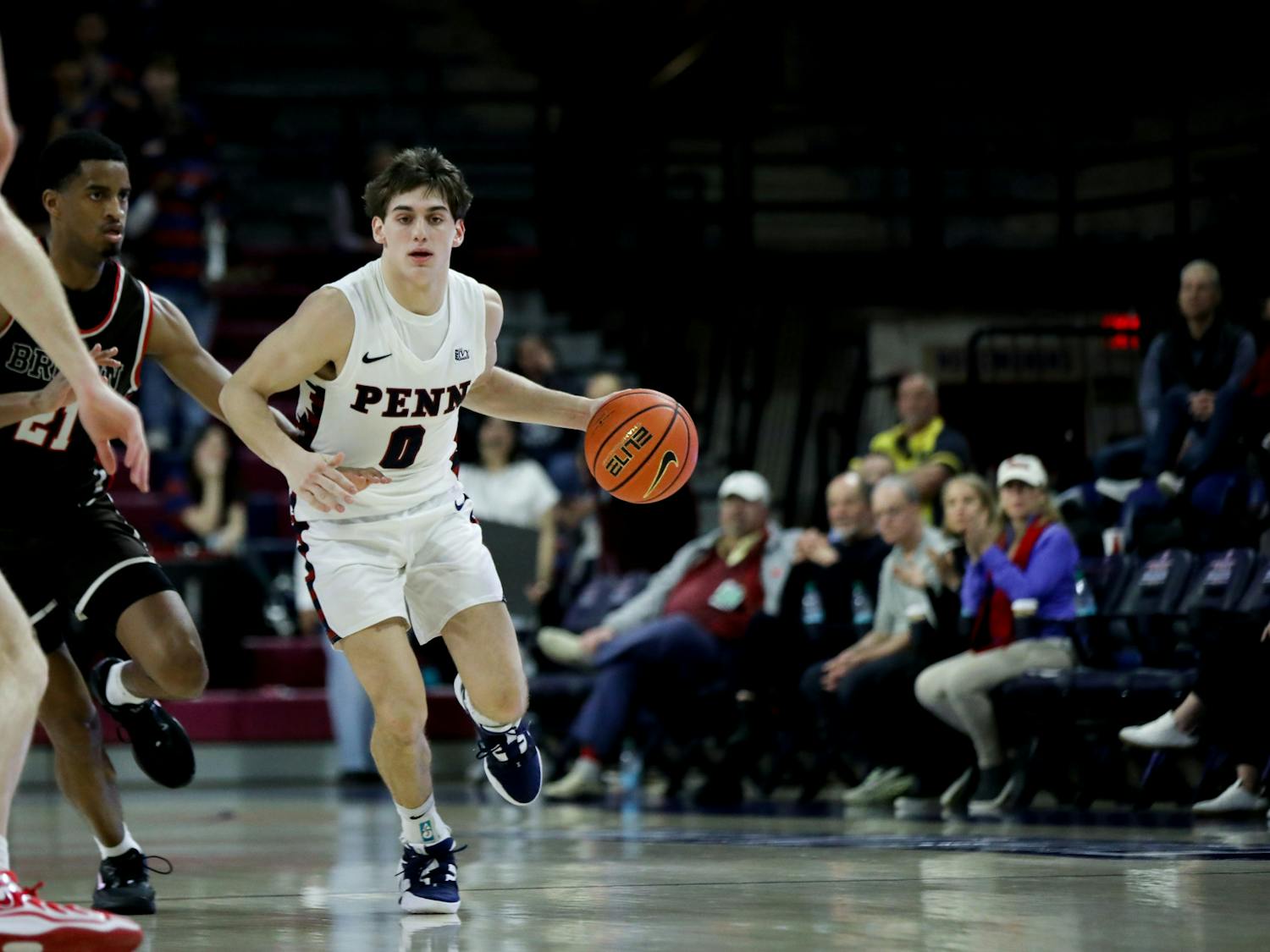For a while now, the Patriot and Ivy Leagues have been considered brothers-in-arms in striking a balance between academics and athletics in Division I.
Both sides have traditionally put a strong emphasis on the "student" half of the term "student-athlete," which for a long time meant not offering athletic scholarships.
In 1998, however, Patriot League schools began to offer a limited form of athletic scholarship. That program is now substantial enough to give the league something like a bargaining chip against the Ancient Eight.
"Scholarships are a resource, just like facilities and recruiting budgets," Patriot League Executive Director Carolyn Schlie Femovich said. "It is another resource to accomplish [schools'] institutional goals as well as their athletic goals."
The Patriot League began permitting athletic scholarships in 1998, at the behest of the College of the Holy Cross. Before joining the Patriot League in 1990, the Crusaders had offered athletic scholarships as a member of the Metro Atlantic Athletic Conference. They were followed by Lehigh, which wanted to offer scholarships in men's and women's basketball as well as wrestling, at which the Engineers have long excelled.
Femovich said that Lehigh's administration believed that scholarships "would allow them to attract not only a better athlete but also a better student. I think if you look at the profile of their basketball players, you would see that they've really been able to achieve that."
Lehigh Athletic Director Joe Sterrett said that he initially had an amount of money equivalent to 11 full scholarships to give to athletes. After a round of cuts a few years ago, he now has the equivalent of 9.9 scholarships.
For the 2001-02 season, the Patriot League expanded southward and welcomed American University, which had been in the Colonial Athletic Association. In the CAA, American had been able to give out scholarships in a number of different sports, including basketball. The Patriot League allowed the Eagles to continue to spend about the same amount of money on scholarships, but the spending was more widely distributed across the school's sports.
Most recently, Bucknell and Colgate of the Patriot League have begun to offer athletic scholarships as well.
The one major exception to the Patriot League's scholarship program is football, in which no athletic scholarships are given. Some football players do receive need-based aid, though. Sterrett said that he believes that on a Patriot League football team of about 80 players, there are an average of 53 players receiving some kind of need-based financial aid.
Femovich said that the high cost of athletic scholarships for football and the principles of emphasizing academics have led the administrations of the Patriot League's schools to draw the line at the gridiron.
"Our presidents have said that we may go down the road with grants in other sports," Femovich said, "but football is the one sport that we really want to stay need-based, and they have stayed true to that."
In Femovich's opinion, the Patriot League's quality in recent years has proven the league's case. Colgate made it to the Division I-AA championship game last season, and Lehigh had a 26-game regular-season winning streak that was snapped by Penn in 2002.
Femovich also has a unique perspective on Ivy League football, having worked for 17 years for the Penn Athletic Department. While she said that scholarships have worked for the Patriot League "because it has allowed our institutions to attract a better student and a better athlete," she respects the Ivy League's policy of not giving out scholarships for any reason other than demonstrated need.
"If you don't use [scholarships] effectively to accomplish your goals, then they may not be as useful as they should have been," Femovich said. "Each conference, and certainly each institution, has to make their own determination -- it's a major philosophical decision, particularly for the Ivy schools."








